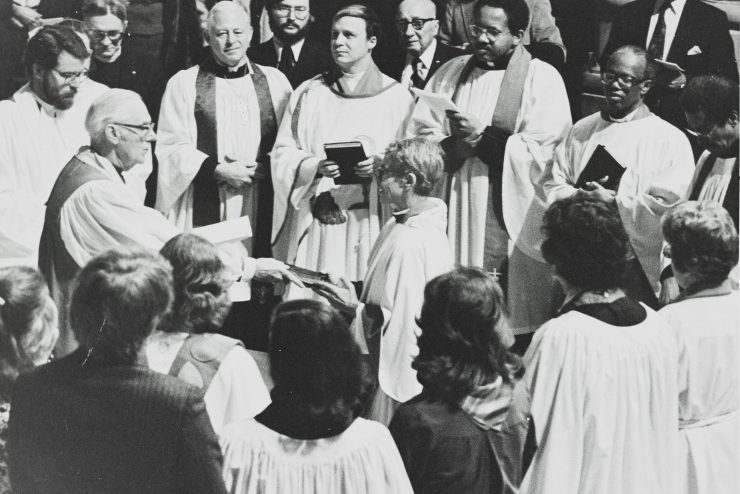First Black Female Episcopal Priest Joins U.S. Currency
The Rev. Dr. Pauli Murray was ordained as the first Black female Episcopal priest, here at the Cathedral in 1977. Now she's the latest American woman to be honored on U.S. currency.

Murray was a pioneering feminist and lawyer — one of those heroes who was ahead of her time and largely existed in the shadows of history until recently.
The Episcopal Church celebrates her feast day every July 1, and later this year she will be featured on U.S. quarters as part of a program that celebrates extraordinary American women. Joining her will be the late Sen. Patsy Mink, D-Hawaii, and Salsa queen Celia Cruz, according to the U.S. Mint.
Episcopal News Service has the story:
Murray, who was ordained in 1977, was a largely unsung hero until the 2021 film “My Name Is Pauli Murray” brought her story to an international audience. Fifteen years before Rosa Parks was arrested for refusing to give up her seat to white passengers on a bus, Murray and a friend did the same in Virginia, though their case did not gain momentum the way Parks’ did.
In her legal career, Murray was among the first to argue the unconstitutionality of “separate but equal” laws, an argument cited 10 years later in Brown v. Board of Education by Thurgood Marshall, the civil rights attorney who later became a Supreme Court justice. Marshall called Murray’s book on segregation laws “the bible of the civil rights movement.” And Ruth Bader Ginsburg, the future Supreme Court justice, used Murray’s arguments in a legal brief she wrote – listing her as a co-author – while arguing Reed v. Reed, the 1971 Supreme Court case that banned gender discrimination based on the 14th Amendment’s equal protection clause.
Murray was queer, though her specific identity within the LGBTQ+ community has recently been debated, with some arguing that she should be considered nonbinary or a transgender man. Her stature has recently grown among the American public and in The Episcopal Church, where Black and queer leaders today recognize her as a major influence.